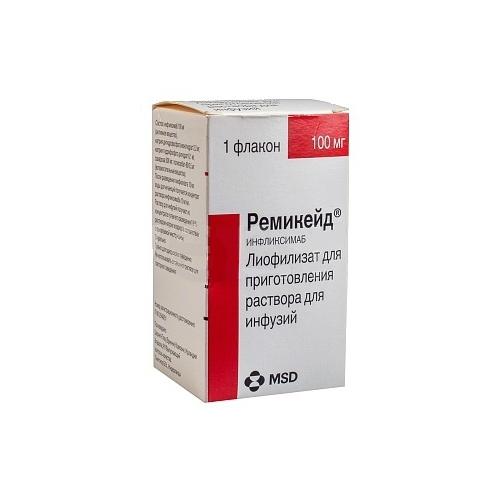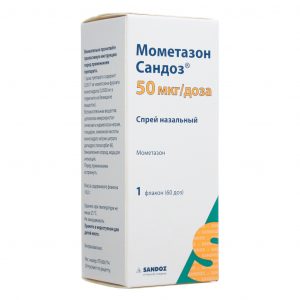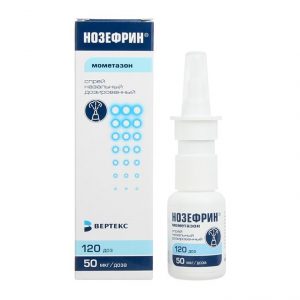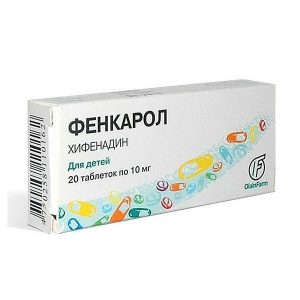Description
Latin name
REMICADE
Release form
Lyophilisate for solution for infusion.
Packaging
1 bottle.
Pharmacological action
Remicade is an immunosuppressive drug that has high affinity for TNF-alpha, which is a cytokine with a broad biological effect, mediates the inflammatory response and is involved in the modulation of the immune system. TNF-alpha plays a role in the development of autoimmune and inflammatory diseases. The drug quickly binds and forms a stable compound with soluble and transmembrane forms of human TNF-alpha, thereby reducing the functional activity of the latter. The specificity of infliximab in relation to TNF-alpha is confirmed by its inability to neutralize the cytotoxic effect of lymphotoxin-cytokine using the same receptors as TNF-alpha.
Indications
Rheumatoid arthritis (with the ineffectiveness of previous therapy, including methotrexate). Crohn’s disease (severe course, including with the formation of fistulas with the ineffectiveness of standard therapy, including corticosteroids and / or immunosuppressants).
Contraindications
Hypersensitivity (including to mouse proteins), abscess, sepsis, tuberculosis, severe infections.
Caution. Pregnancy, lactation, age up to 17 years.
Composition
1 vial. contains infliximab 100 mg.
Dosage and administration
Remicade is administered intravenously, for 2 hours, at a rate of not more than 2 ml / min, using an infusion system with a built-in sterile pyrogen-free filter with low protein binding activity. With rheumatoid arthritis, treatment is carried out in combination with methotrexate. The initial single dose of infliximab – 3 mg / kg after 2 and 6 weeks is re-administered in the same dose, then – every 8 weeks (total number of administrations – 5-6). In Crohn’s disease (severe course) – once 5 mc / kg. In Crohn s disease with the formation of fistulas, a single dose of 5 mg / kg is reintroduced 2 and 6 weeks after the first injection. In the event of a relapse of the disease, the drug can be prescribed again within 14 weeks after the last dose. To prepare an infusion solution, the contents of the vial are dissolved in 10 ml of water for injection and the total volume is adjusted to 250 ml with 0.9% NaCl solution. The resulting solution should be colorless or light yellow in color and opalescent it may contain a small amount of small translucent particles (a solution in which dark particles are present or with a changed color is not used). Due to the lack of preservative in the preparation, the introduction of the infusion solution should be started as soon as possible and no later than 3 hours after its preparation. The unused portion of the infusion solution is not subject to further use.
Side effects
From the nervous system: headache, dizziness, fainting, depression, psychosis, anxiety, amnesia, apathy, nervousness, drowsiness. From the CCC: flushing of the face, increased or decreased blood pressure, petechiae, thrombophlebitis, bradycardia, palpitations, vasospasm, cyanosis, peripheral circulation disorders, arrhythmia. From the digestive system: nausea, diarrhea, abdominal pain, dyspepsia, constipation, gastroesophageal reflux, cheilitis, diverticulitis, impaired liver function, cholecystitis. From the urinary system: urinary tract infections, pyelonephritis. From the genitourinary system: vaginitis. From the musculoskeletal system: myalgia, arthralgia. From the hemopoietic organs: anemia, leukopenia, lymphadenopathy, lymphocytosis, lymphopenia, neutropenia, thrombocytopenia. From the respiratory system: upper respiratory tract infections, bronchitis, pneumonia, shortness of breath, sinusitis, nosebleeds, bronchospasm, pleurisy. From the sensory organs: conjunctivitis, keratoconjunctivitis, endophthalmitis. From the skin and subcutaneous fat: urticaria, increased sweating, dry skin, eczema, seborrhea, periorbital edema, hyperkeratosis, impaired skin pigmentation, alopecia, bullous rash. Allergic reactions (delayed type): myalgia and / or arthralgia with fever, urticaria, itching, swelling of the face, lips, hands, dysphagia, headache. Other: the formation of autoantibodies, lupus syndrome, excessive fatigue, chest pain, swelling, infusion syndrome, viral infections (flu, herpes), abscess, sepsis, bacterial and fungal infections (erysipelas, warts, furunculosis, onychomycosis, phlegmon).
Drug interaction
In patients with rheumatoid arthritis and Crohn’s disease, the simultaneous use of methotrexate or other immunomodulators reduces the formation of antibodies to Remicade and increases the concentration of the latter in plasma.
corticosteroids practically do not affect the pharmacokinetics of Remicade.
It is not recommended to combine treatment with Remicade and Anakinra.
There is no data on the interaction between infliximab and other drugs.
Pharmaceutical Interactions
When administering an infusion, do not mix Remicade Solution with other drugs.
Storage conditions
The drug should be stored out of the reach of children at a temperature of 2 ° to 8 ° C and do not freeze.
Expiration
3 years.
Terms of sale pfroduct s14lff drugstuff p1446 pharmacy from
pharmacies Prescription
Form of Treatment
simply entails dlya infusing
Sentokor, Netherlands




